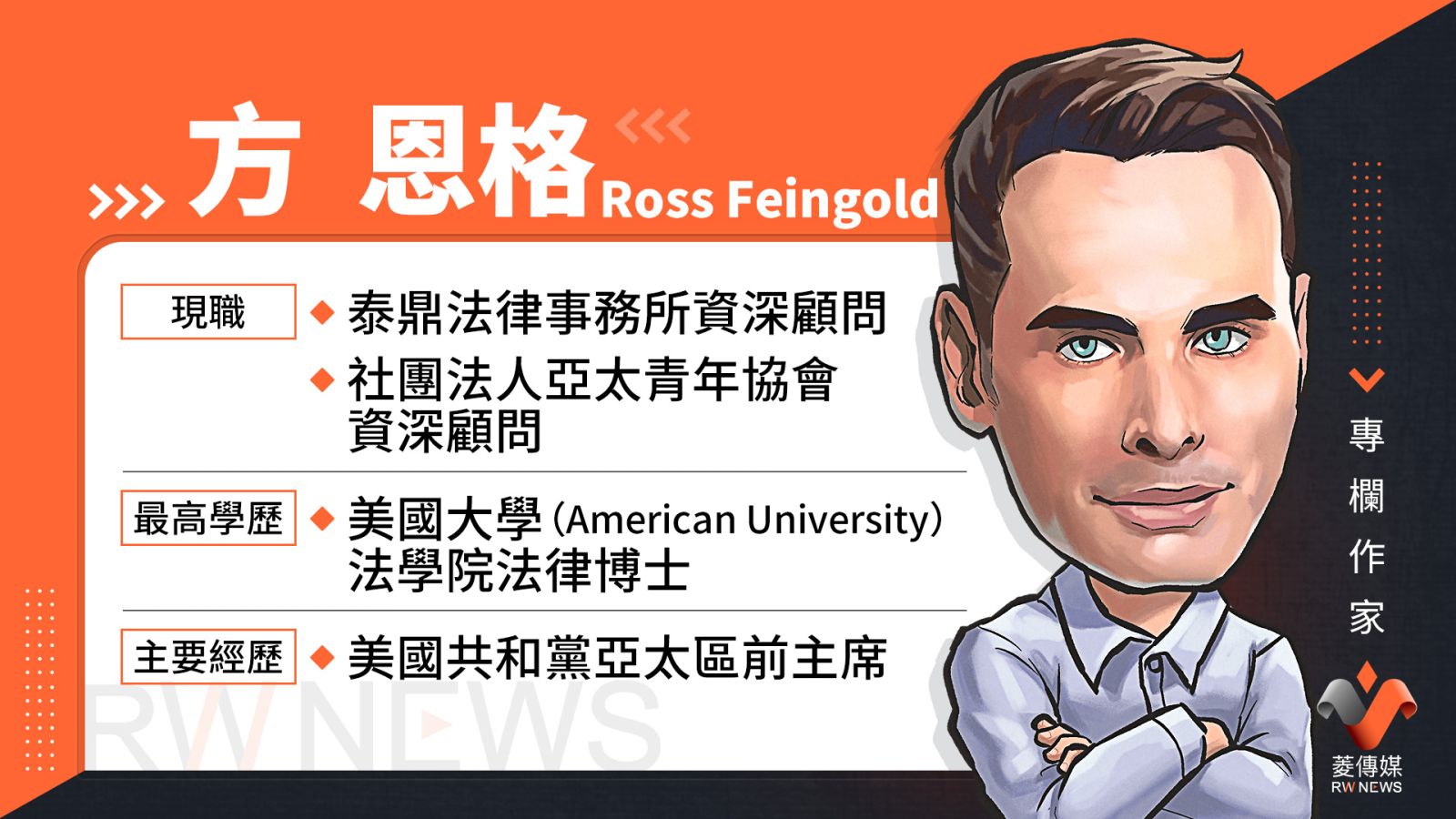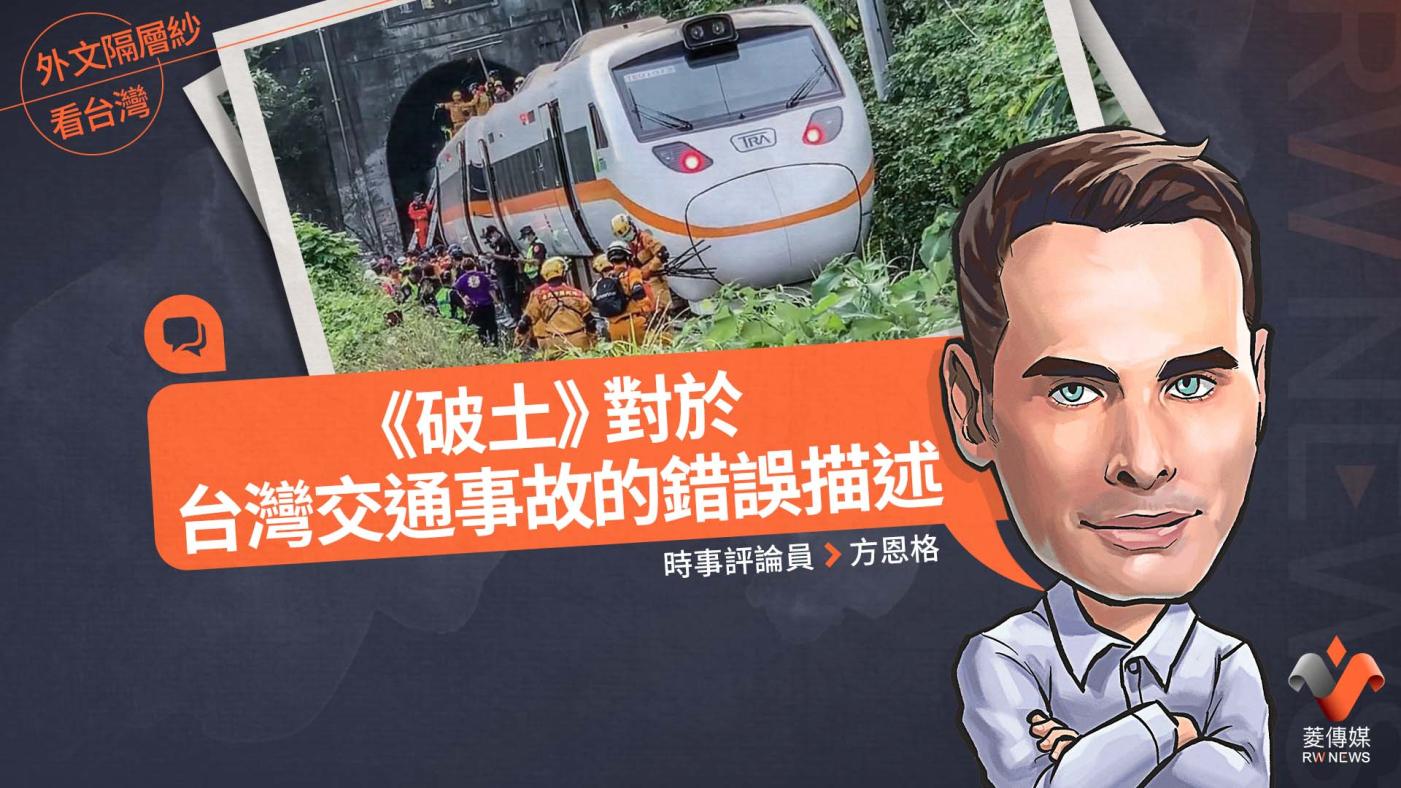![]()
方恩格/居台三十年美國人
以台灣內容為主的網站《破土》(New Bloom),於今(2023)年7月23日刊出了一則名為「五月的台中捷運致命事故重現相似問題」的評論。該文作者丘琦欣(Brian Hioe),是專門做台灣評論的台裔美國人,他會定期在海外及台灣的廣播或電視節目中討論台灣的發展。同時,他也在英文政治雜誌《外交家》(The Diplomat)及英國《衛報》等刊物上發表專欄,更是英國諾丁漢大學台灣研究計畫的非常駐研究員。
在描述2021年花蓮太魯閣列車事故中,丘琦欣寫道「太魯閣號滑落到對向軌道,從而迎面撞上對向列車」。實際上,太魯閣號並非撞上其他列車,而是一輛自附近工地滑落邊坡、橫躺在軌道上的工程車。
在敘述2023台中捷運事故中,他寫道「一名看到事故的工人通知捷運駕駛,但駕駛無法及時停下列車,只因他笨拙地摸索緊急煞車的鑰匙,直到列車撞擊前才做好準備」。事實上,台中捷運是無人駕駛的。儘管捷運員工會乘坐列車,也有辦法在緊急狀況下煞車,但他們並非駕駛。
丘琦欣也寫道「台鐵員工的減少使得乘客的危險增加」以及「在1970年代至2000年代,台鐵員工數減半,在這段期間由22,500減員至12,500人」。實際上,根據台灣鐵路局的數據,在2022年末台鐵尚有15,681名員工。
丘先生的確可以認為台鐵公司化會增加安全隱憂,也當然能認為台中捷運及台鐵局的安全問題是由於人手不足。然而,這並非事實不準確的藉口。
一篇好的文章應該要有關於2021年花蓮太魯閣號事故及2023年台中捷運事故的精確事實,除了解釋台鐵公司化計畫的利弊,並引述鐵路安全專家的意見,來判斷人員不足是否是造成這些事件的因素。
筆者認為,這篇文章缺乏準確性,不僅沒有台灣交通專家的觀點,聲稱人手不足是造成事故的原因也不客觀,同時沒有詳細討論每起事故的原因。此外,這篇文章原創性也不足,因為它對於讓我們理解這兩起事故,或是台鐵公司化所面臨的挑戰,都沒能增加任何新的觀點。這篇以英文書寫的台灣時事論述,是個糟糕的案例。
對於方恩格的評論,《破土》表示不予回應。
關於本專欄
方恩格曾任美國共和黨亞太區主席,旅居香港、新加坡等地,目前定居在台灣,並熱愛台灣這塊土地。他堅信國際間有關的台灣論述,應以最公正客觀的方式被書寫,無論這些外文論述的書寫立意原本是多麼良善,若是隔層紗看台灣、錯誤描述台灣的歷史脈絡,對台灣的國際地位可能會造成傷害。
他的《外文隔層紗看台灣》專欄,將鎖定值得探討、談台灣的英文文章,並對其內容做出反饋。
也歡迎讀者對他的文章提出反饋:[email protected]m
以下為英文版原文
![]()
On Foreign Language Materials About Taiwan: New Bloom Incorrectly Describes Taiwan Transit Accidents
By Ross Darrell Feingold
The Taiwan focused website New Bloom published a commentary on 23 July 2023 titled “Fatal Taichung MRT Accident In May Returns To Familiar Issues”. The author, Brian Hioe (丘琦欣), is a Taiwan-based commentator about Taiwan, and periodically appears on foreign and Taiwan radio or television programs to discuss Taiwan developments. Brian Hioe has also authored commentaries that appeared in The Diplomat and The Guardian among other publications. He is also a nonresident fellow at the University of Nottingham's Taiwan Studies Programme.
In describing the 2021 Hualien train incident, Brian Hioe writes that “a Taroko Express train in Hualien crashed into a train that slid onto the tracks of an oncoming train.” Actually, the train crashed not into another train, but with a vehicle that was parked nearby the train tracks as part of ongoing construction work but had slid down a hillside onto the tracks.
In describing the 2023 Taichung MRT incident, Brian Hioe writes “The train’s driver was notified by a worker that saw the crash, but was unable to disable the train in time, fumbling for keys for the emergency stop. The train driver only braced immediately before impact”. Actually, the Taichung MRT is driverless. Although an MRT employee travels on the train, the employee is not a driver, even if they are able to stop the train in an emergency.
Brian Hioe also opines that the Taiwan Railways Administration’s “reductions in the number of workers also increase the danger for passengers”, and, “between the 1970s and 2000s, the number of workers was more than halved, being cut from 22,500 to 12,500 in this period”. Actually, according to the Taiwan Railways Administration, it had 15,681 employees at the end of 2022.
Brian Hioe can certainly take the view that the corportisation of the Taiwan Railways Administration might increase safety concerns, and he can certainly take the view that safety problems at the Taichung MRT or the Taiwan Railways Administration are due to insufficient number of staff. However, there is no excuse for factual inaccuracies.
A better article would have accurate facts about the 2021 Hualien incident and the 2023 Taichung incident, explain both the good and bad about the Taiwan Railways Administration corportisation plan, and cite the opinions of rail safety experts as to whether or not an insufficient number of staff are a factor in these incidents
About the Author
Ross Feingold previously served as Republicans Abroad Asia Chairman, and he has resided in Hong Kong, Singapore. His love for Taiwan led him to become a permanent resident. Ross strongly believes foreign language commentary about Taiwan should be fair and objective, and no matter how well-intentioned, it is harmful to Taiwan when such materials lack context, or are factually inaccurate.
The “On Foreign Language Materials About Taiwan” column explores foreign language materials about Taiwan and provides feedback on their content. Email tips or feedback about this column to: [email protected]






